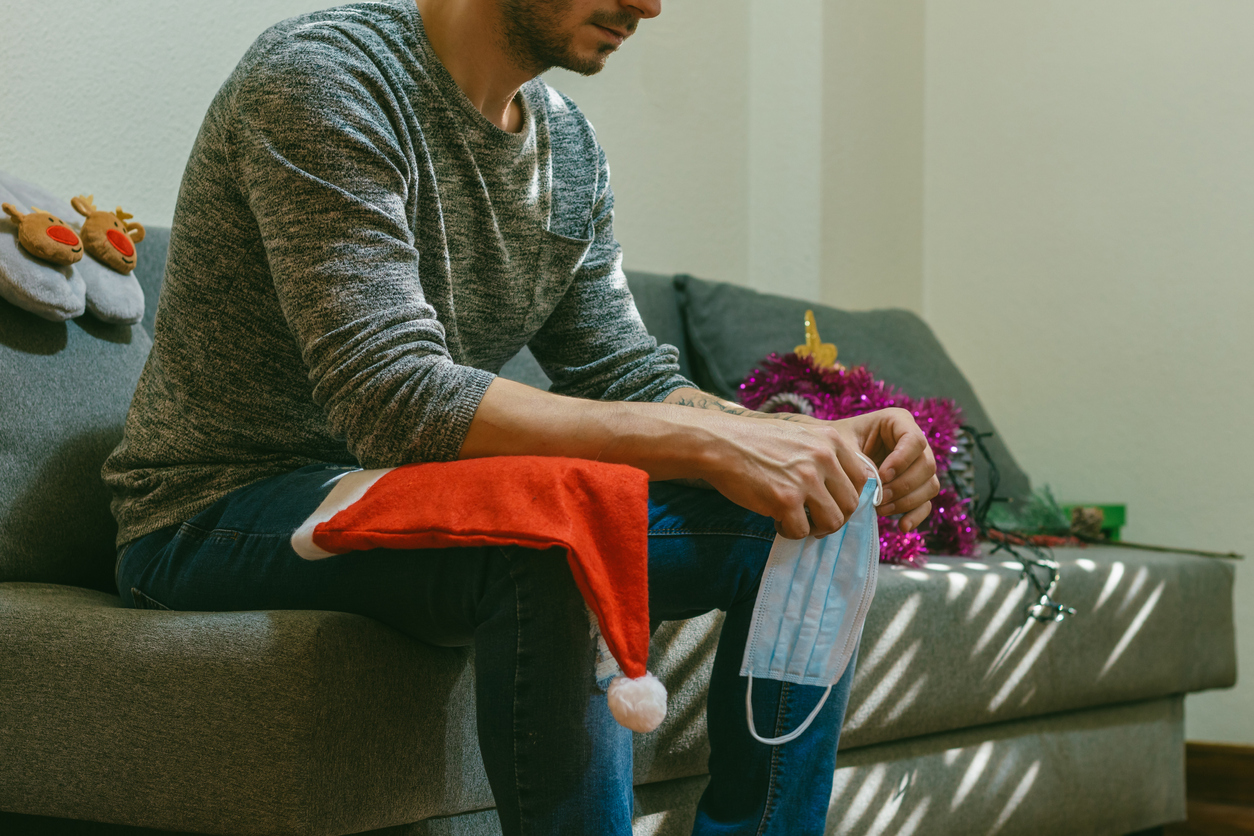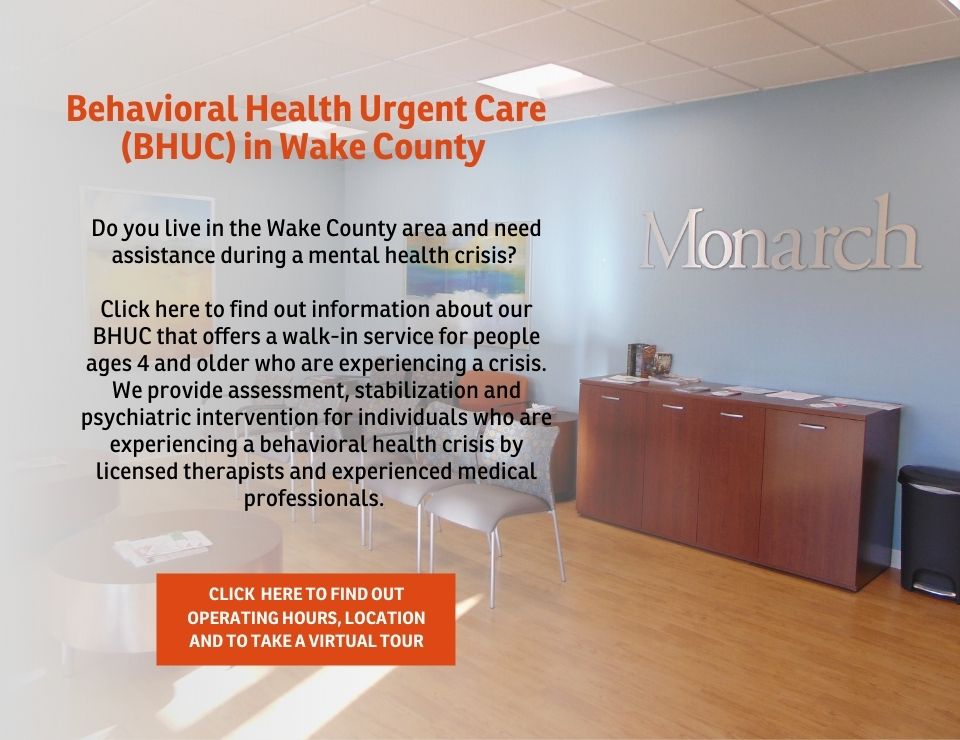How to Overcome Holiday Stress while Healing from a Mental Health Diagnosis

Twinkling lights, the stories abuzz with shoppers, social and family holiday celebrations. The excitement, as well as the stress, that the holidays may sometimes bring can be overwhelming to individuals with a mental health diagnosis.
Monarch like many other behavioral health providers across the country has seen an increase in people seeking mental health crisis services for new or worsening depression, decreased energy level, as well as lack of motivation and interest in regular, everyday activities. She attributes this to seasonal change and the upcoming holidays.
Monarch provides outpatient and crisis services for children, adolescents and adults across North Carolina and is available to help people who may be struggling during the holiday season.
The holidays, for wide and varied reasons, are a time of the year that people seek mental health crisis services, Monarch experts note, adding that this time of year is often complicated by increased stress levels, grief, isolation and loneliness, family dynamics, as well as financial burdens.
A study done by the National Association for Mental Illness (NAMI) shows that 64% of people living with a mental illness experience worsening symptoms during the holiday season in November and December.
Seasonal Affective Disorder (SAD)
People who struggle with SAD may find their mood worsening in the weeks leading up to the holiday season, Remington shares. SAD can be a period of time, usually when the days get shorter in the fall and winter, resulting in people feeling sad or not like their usual selves. Typically, individuals experiencing SAD begin to feel better in the spring with longer daylight hours.
Another hallmark of the holiday season is the pressure to complete many tasks amidst family obligations and responsibilities and spending time celebrating with friends and family. Remington notes that family circumstances can trigger uncomfortable emotions especially if relationships are strained or difficult.
“Spending time with family may cause anxiety for people who do not have healthy relationships with their loved ones, siblings, parents or extended family,” Monarch’s staff say.
For example, someone who has schizophrenia, often noted by a range of problems with thinking, behavior and emotions which can involve delusions, hallucinations or disorganized speech, can be affected by the stress of the holidays worsening the symptoms.
For someone who has a mood disorder, such as depression or bipolar disorder which cause an imbalance of brain chemicals, stress can increase the risk for relapse of depressive or manic symptoms.
If you are experiencing a mental health emergency, please call 9-8-8, the National Suicide and Crisis Hotline, for help.
Practical Tips to Counteract SAD
Remington offers the following suggestions for anyone experiencing stress during the holidays.
• Accept your limitations. Be patient with others, too.
• Set realistic expectations. Prioritize what is important to you.
• Set boundaries. Learn how to comfortably say “no” to requests.
• Avoid numbing or avoiding feelings by using alcohol or other substances, which can worsen anxiety and depression.
• Often, people want to help but don’t know what to say or do. Let your loved ones know how they can support you.
• Look for ways to release harmful emotions. Introduce a new tradition, spend time outdoors, share your feelings with another person, write in a journal, exercise. Be creative with your interests and prioritize what you like to do.
Monarch staff say the most important point to remember is to seek professional help. If symptoms become severe or last longer than two weeks reach out for help and don’t wait for the “right time.” Seeking professional help from someone such as a therapist can mean feeling better and heading toward recovery.
Please note that Monarch’s offices will be closed on the following days during the holiday season:
- Thanksgiving: Closed Thursday November 22 and Friday, November 23
- Christmas: Friday, December 22 and Monday, December 25
- New Year’s Day: Closed Monday, January 1, 2024
Posted on: Monday October 30, 2023

